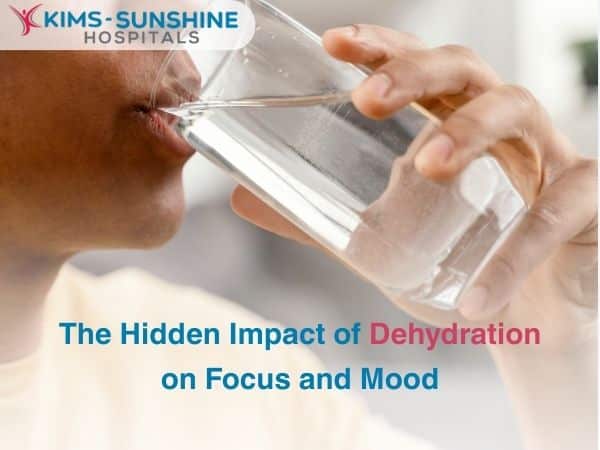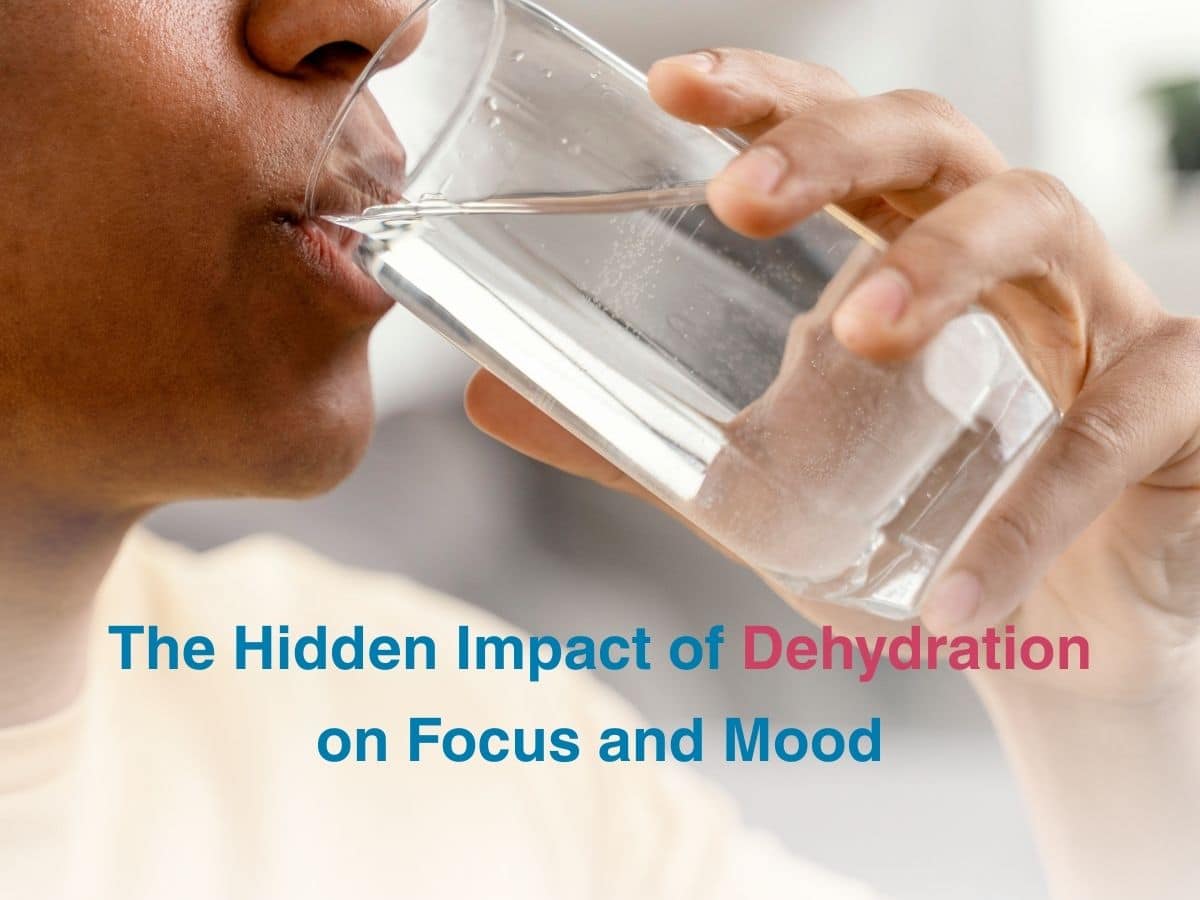
The Hidden Impact of Dehydration on Focus and Mood

It is astonishing how the human brain, which floats rather delicately in its protective cerebrospinal fluid, reacts the moment hydration levels dip even slightly. This is a phenomenon noted in several cognitive physiology studies that describes water as a foundational medium for neuronal conductivity, meaning that the absence of adequate fluid impairs synaptic efficiency, glucose transport and thermoregulation, eventually creating a cascade in which thinking slows, attention fragments quietly and the brain behaves like a bustling railway station suddenly deprived of electricity – where signals fail to arrive on time and everything feels just a little less synchronised than it should.
Dehydration And Mental Fatigue
There is an almost poetic irony in how mental tiredness creeps in when water intake declines, because the body attempts to preserve essential functions by altering blood viscosity, electrolyte concentration and hormonal triggers like vasopressin, setting off a subtle imbalance that researchers have often compared to an engine running on insufficient lubrication. Indian officegoers, students and homemakers notice this fatigue not as an immediate crash but as a long, slow unravelling of sharpness, in which tasks require more effort, irritability sets in and the day begins to feel stretched thin and taut.
Water Intake and Concentration
The ability to concentrate, which many neuroscientists describe as a temporally delicate cognitive state relying on neurovascular coupling, becomes surprisingly fragile when hydration falters, because glucose metabolism in brain tissue slows and oxygen delivery becomes less efficient, leading to a sense of fog that feels familiar to anyone navigating long commutes, intense deadlines or heat heavy afternoons in Indian cities. This decline in focus mirrors what one research paper described as a drop in “attentional vigilance”, a phrase that captures the way thoughts slip away like sand, refusing to stay exactly where one intends them to be.
How Hydration Affects Mood and Memory
Mood and memory, which seem so independent at first glance, actually share biochemical pathways that are deeply influenced by hydration status, with the hippocampus, prefrontal cortex and limbic system reacting to fluid loss through altered neurotransmitter balance, shifting cortisol patterns and changes in neuronal excitability. This can result in emotional fluctuations, forgetfulness and a sense of being mentally scattered – a state many Indian adults know too well during high pressure weeks. Some behavioural research suggests, even a two percent drop in hydration can begin to interfere with emotional equilibrium in ways subtle enough to be dismissed yet powerful enough to shape an entire day.
Conclusion
Electrolytes, often spoken about casually yet crucial for maintaining transmembrane potential and neuronal firing, take on profound importance during dehydration, for sodium, potassium and chloride ions regulate every microsecond of neural communication. When their levels shift due to inadequate fluid intake, the brain responds with slowed processing, headaches and cognitive dullness – a mechanism outlined in neurobiology literature that likens ion imbalance to a disrupted musical scale, where one off key note alters the whole composition. So, go ahead, try being a hero and save the day- but after you hydrate mindfully and not before that!






